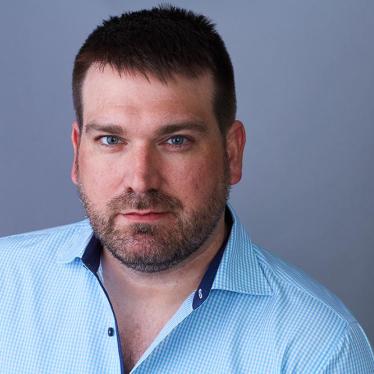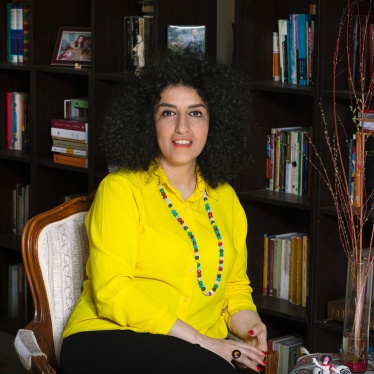On December 3, officials at Jeddah’s King Abdulaziz International Airport prevented Samar Badawi from leaving Saudi Arabia to advocate abroad for the release of her husband, Waleed Abu al-Khair. A lawyer and human rights activist, he is in prison, facing a 15-year term for peacefully criticizing Saudi authorities on Twitter and in television interviews.
The travel ban isn’t Badawi’s first punishment for standing up for human rights. In 2010, a Saudi judge jailed her for seven months on the charge “parental disobedience” after she fled her home to escape domestic abuse and sought to have her father’s male “guardianship” rights over her cancelled. She remained in jail until al-Khair took on her case and helped secure her release with a media campaign that stirred an international outcry. They have since married. Now the script is flipped, and it is Badawi who seeks to mobilize international pressure to overturn Abu al-Khair’s unjust imprisonment.
Badawi’s advocacy is the kind of activism that Saudi officials hate, as it impairs their attempts to burnish their country’s image internationally, including at the UN Human Rights Council (HRC) in Geneva, which Saudi Arabia joined in late 2013. When Badawi attempted to speak about her husband’s case at a council meeting in September, the Saudi delegate twice interrupted to prevent her from finishing her remarks. In June 2014, Saudi delegates at the council three times interrupted a statement about Badawi’s brother Raif, who faces a 10-year jail sentence and 1,000 lashes for starting a liberal website in Saudi Arabia.
Now Saudi delegates don’t have to worry about silencing Badawi in Geneva – or any other international human rights body. When Saudi officials show so little respect for the right to freedom of expression at the Human Rights Council, it’s no wonder that more and more activists back home are facing long prison terms simply for speaking up.
Many times over the past year, I’ve wondered whether Saudi Arabia’s relentless campaign against independent activists and peaceful dissidents could get any worse, yet authorities have always managed to find a new low.
Along with Abu al-Khair, in 2014 Saudi Arabia’s terrorism court sentenced a Qatif-based activist, Fadhil al-Manasif, to 14 years on charges largely based on his assistance to foreign journalists covering popular protests. Fowzan al-Harbi, a member of the now-banned Saudi Civil and Political Rights Association (ACPRA), was jailed in November after an appeals court increased his sentence to 10 years on charges stemming from his peaceful activism. ACPRA members Abdullah al-Hamid and Mohammed al-Qahtani, are serving 11- and 10- year sentences handed down in March 2013 for similar charges.
A liberal activist, Su`ad al-Shammari, and another ACPRA member, Abdulrahman al-Hamid, are in jail awaiting trial. Saudi courts have convicted the human rights activist Mikhlif al-Shammari twice for his peaceful activism, once for merely interacting with members of the country’s Shia Muslim minority. Still others have faced harassment and intimidation, including Iman al-Qahtani, a journalist who was forced to delete her twitter account in April 2013 and has been under a travel ban since July of that year.
Even activists pressing the government to allow women to drive, who until recently had largely avoided jail time, are under threat. Saudi authorities arrested and detained Lujain al-Hathloul and Maysa al-`Amoudi on December 1 for driving to the UAE border.
Making matters worse, terrorism regulations promulgated in 2014 give authorities a new tool to punish activists by criminalizing, as terrorism-related offenses, acts such as “contact or correspondence with any groups hostile to the kingdom,” and “calling, participating, promoting, or inciting sit-ins [or] protests.”
The onslaught of arrests, convictions, travel bans, lashes, and intimidation appears designed to silence critical voices, both inside the country and even abroad. Such a failure to respect the basic right of citizens to peacefully call for reform makes a mockery of Saudi Arabia’s membership on the UN Human Rights Council, which Badawi made obvious during her recent visit.
If Saudi Arabia wants to improve its image, joining international human rights bodies is not sufficient. Rather, it should start respecting the rights of its citizens, immediately release those unjustly imprisoned for standing up for these rights and sweep away travel bans such as the one against Badawi.
Adam Coogle is a Middle East researcher at Human Rights Watch who follows events in Saudi Arabia. Follow him on Twitter @cooglea








